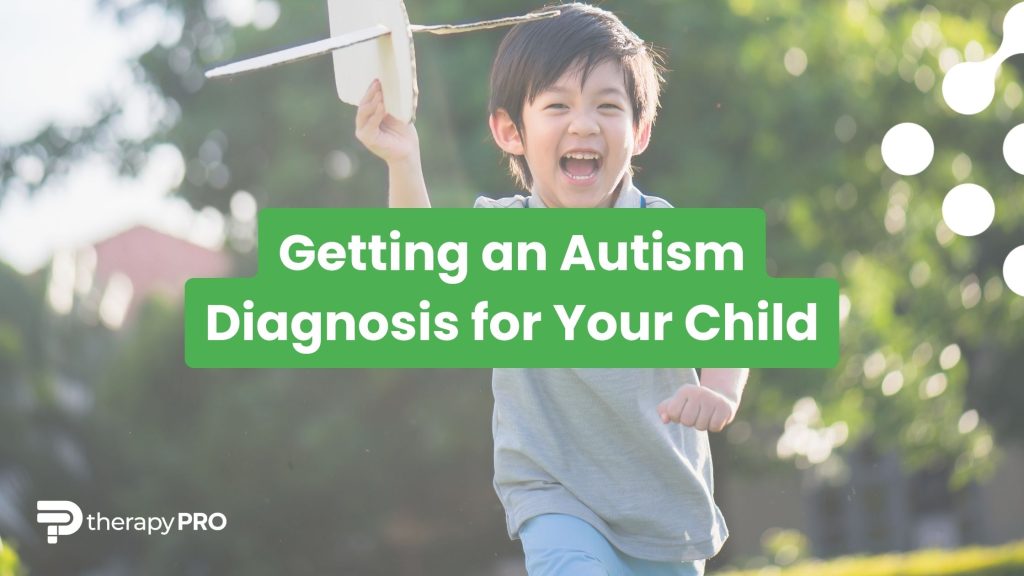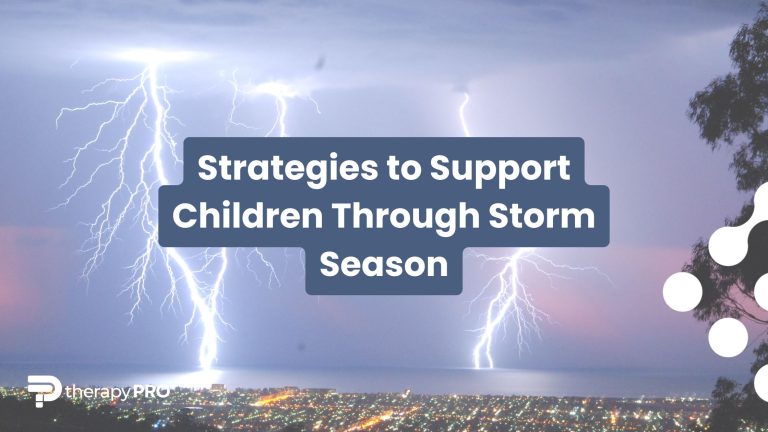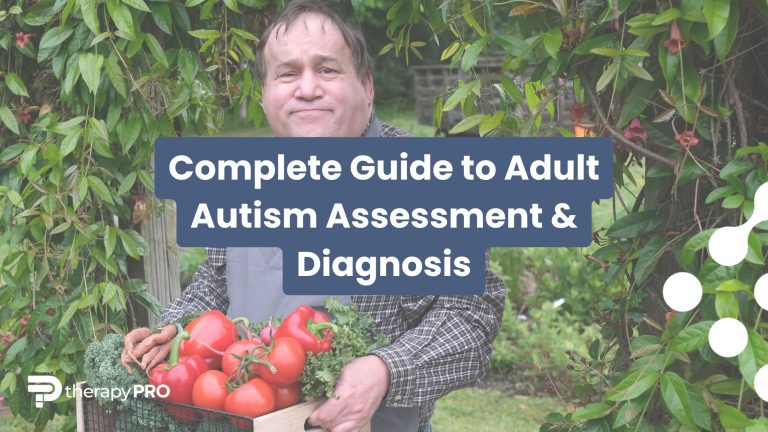Getting an Autism Diagnosis for Your Child: Process, Costs, and What to Expect
If you’re researching autism diagnosis for your child, you’re likely navigating a mix of emotions, questions, and concerns about what comes next. Understanding the autism assessment and diagnosis process, associated costs, and available support options can help you feel more prepared as you take this important step.
Why early autism diagnosis matters
Early identification of autism can make a significant difference in your child’s development and wellbeing. With a formal diagnosis, you can access appropriate supports, interventions, and funding that can help your child thrive.
Early intervention services through multidisciplinary therapy teams, including occupational therapy, speech pathology, and psychology, are most effective when started as soon as possible.
Understanding autism assessment
A comprehensive autism assessment involves a thorough evaluation by qualified professionals who specialise in developmental, communication and behavioural conditions. The assessment process typically includes:
- Taking a developmental history: a detailed review of your child’s developmental milestones, behaviours, sensory sensitives and family history
- Administering standardised assessments: qualified clinicians use gold-standard assessment tools such as the ADOS-2 (Autism Diagnostic Observation Schedule) and ADI-R (Autism Diagnostic Interview-Revised)
The assessment is designed to provide a comprehensive picture of your child’s strengths, challenges, and support needs.
Who can diagnose autism in Australia?
In Australia, autism diagnoses must be made by qualified professionals with specific expertise in autism assessment. This typically includes:
- clinical psychologists
- educational and developmental psychologists
- paediatricians
- psychiatrists
- speech pathologists
- occupational therapists
Therapy Pro’s assessment clinics in Brisbane and Melbourne are staffed by qualified psychologists who can conduct comprehensive autism assessments and provide detailed diagnostic reports.
If you choose to work with Therapy Pro, we are essentially a one-stop shop – you do not need to engage with any other professional or provider which reduces wait times.
The autism assessment process: What to expect
Step 1: Initial consultation
Duration: 45-60min
Who’s involved: psychologist, parent/carer (for children), individual being assessed (where appropriate)
- Understand your concerns and goals
- Detailed developmental history gathering
- Discussion of current functioning across home, school or work environments
- Review of any previous reports or assessments
- Completion of screening questionnaires and rating scales
- Explanation of the assessment process and what to expect
- For children: gathering information from parents, carers and teachers
- For adults: exploring lifetime experiences and developmental patterns
Step 2: Assessment sessions
Duration: total 4-7 hours, across 2-3 appointments
Who attends: psychologist (and other therapists as needed eg., SLP or OT), individual being assessed, parent/carer
- Standardised assessment tools
- Cognitive and developmental testing (where appropriate)
- Observational activities tailored to age and language level
- Evaluation of social communication, interaction patterns and behaviours
- Assessment of sensory processing and adaptive functioning
Step 4: Analysis & report
Duration: 3-4 weeks after completion of testing.
What we do: Comprehensive analysis
Your detailed written report includes:
- Background information and reason for referral
- Assessment methods and tools used
- Detailed assessment findings and observations
- Diagnostic conclusion using DSM-5TR criteria (if appropriate)
- Individual strengths and areas of support need
- Tailored recommendations for interventions, accommodations and supports
- Information suitable for NDIS applications, school support plans or workplace adjustments
Step 5: Feedback session
Duration: 60min
Who attends: psychologist, parent/carer (for children), individual being assessed (where appropriate)
- In-depth discussion of assessment results and findings
- Explanation of diagnostic conclusions and what they mean
- Review of recommendations and next steps
- Opportunity to ask questions and clarify any concerns
- Discussion of available supports and services
- Guidance on accessing funding or accommodations
Costs and funding options
Autism assessments in Brisbane and Melbourne are provided on a fee-for-service basis.
Therapy Pro autism assessments fees range from $2000 to $2700 depending on the requested assessments. Our autism assessments are fee for service meaning clients pay out of pocket for the assessment and we do not use other funding sources, such as the NDIS.
Some private health insurance policies may provide partial rebates for psychological assessments. It’s worth checking with your fund about coverage.
NDIS funding for autism
The NDIS does not fund diagnostic assessments, however our comprehensive reports and diagnosis are suitable for NDIS applications.
Children diagnosed with autism at level 2 or level 3 are generally eligible for NDIS funding, which can provide significant support for therapy services and other disability-related costs.
Level 2 indicates a child requires substantial support, while level 3 indicates a child requires very substantial support.
Children diagnosed with autism level 1 may have more difficulty accessing NDIS-funded supports without sufficient evidence that their disability impacts day-to-day functioning. Additionally, children with co-morbid or multiple diagnoses may require more support and funding, so it is important to complete a thorough assessment.
What can my child’s diagnostic report be used for?
Your child’s diagnostic report can be used as evidence to access a range of supports and services. It is important to keep copies for them to use throughout their life. Some examples of how diagnostic reports can be used are:
School adjustments and support
Your child’s diagnosis report can be used to request reasonable adjustments at school or childcare and applications to special schools. This might include:
- Modified learning plans
- Additional teacher aide time
- Sensory accommodations
- Social skills support
- Environmental modifications
Therapy
Many families access therapeutic services using existing diagnosis to guide treatment Therapy Pro offers fee-for-service therapy where clients can pay for sessions as needed.
Therapy Pro offers flexible, individualised support through occupational therapy, speech pathology, positive behaviour support, social work, and psychology services that can be tailored to your child’s specific needs.
Other uses:
- NDIS applications
- Thriving Kids Program applications
- Requesting reasonable adjustments at university
- Evidence for government funded supports e.g. carers payments.
- Evidence required for medication access when supplied to a psychiatrist or paediatrician.
After diagnosis: Next steps
Once you have your child’s assessment report and diagnosis, you can take several important steps:
Access NDIS funding (if eligible)
If your child has been diagnosed with autism, you can begin the NDIS application process. Your assessment report will be a key piece of evidence in demonstrating your child’s eligibility and support needs.
Begin intervention
With a clear diagnosis, you can start accessing appropriate interventions.
Therapy Pro’s multidisciplinary teams can provide coordinated support through:
- Psychology services for improved emotional literacy and coping, development of executive functioning and social skills
- Occupational therapy to develop daily living skills, sensory processing, and school participation
- Speech and language pathology for communication development
- Social work for family support and care coordination
- Positive behaviour support to reduce behaviours of concern
Many families begin with one or two key therapy services and expand as needed based on their child’s goals and progress.
Build your support network
Connect with other families, autism advocacy organisations, and community resources. Understanding autism and connecting with others on similar journeys can provide valuable emotional support and practical advice.
Why choose Therapy Pro for an autism assessment
Immediate availability
Unlike many assessment services with lengthy waitlists, Therapy Pro’s assessment clinics in Brisbane and Melbourne offer immediate availability. This means you can get answers sooner and start accessing supports without delay. And reports are provided within 4-6 weeks of the last assessment session.
Gold-standard assessment tools
Our qualified psychologists use evidence-based, gold-standard assessment tools (ADOS-2 and ADI-R) to ensure accurate and comprehensive evaluation.
Seamless pathway to support
Once you have your assessment report, Therapy Pro can provide ongoing support through our multidisciplinary teams. We offer flexible service delivery options including in-person intervention whether that’s at home, school, or in the community, or telehealth where appropriate.
Client-centred approach
At Therapy Pro, you and your child are at the centre of everything we do. We work collaboratively with families to create individualised support plans that reflect your goals, values, and priorities.
Getting started
If you’re concerned about your child’s development and considering an autism assessment, reach out to our team.
Early assessment can open doors to understanding your child better and accessing the right supports at the right time. You don’t have to navigate this journey alone, we’re here to help.
About Therapy Pro’s team
This article was developed by Therapy Pro’s team of registered and provisionally registered psychologists. With experience providing comprehensive assessments across all ages, our team delivers evidence-based evaluations tailored to your individual needs. We are committed to delivering high-quality, family-centred care through our Brisbane and Melbourne assessment clinics, with telehealth options available for initial consultations.
Therapy Pro’s autism assessments are provided on a fee-for-service basis, with some private health insurance policies covering psychological assessments. Our comprehensive reports can be used to support applications for school accommodations, NDIS supports, and other services. All assessments are conducted by qualified psychologists working under nationally recognised ethical guidelines, ensuring you receive professional, reliable results you can trust.
++++
Important notice: This information is general in nature and is not intended as personal advice. Individual responses to therapy vary. We recommend consulting with a qualified professional to discuss your specific circumstances and determine the most appropriate treatment approach for your needs.




